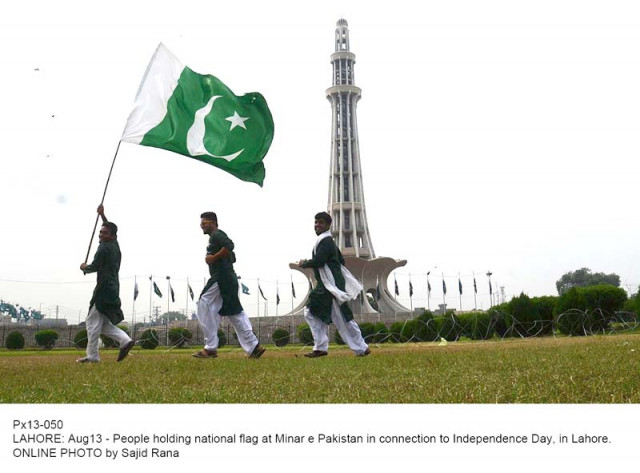What I learned from extraordinary Pakistanis
Extraordinary Pakistanis are defined by their unique life choices, not just their circumstances

PHOTO: ONLINE
Extraordinary Pakistanis are defined by their surprising life choices
Going into this series, I had a theory that extraordinary Pakistanis must come from well-established families, with more privilege and easier life choices than the rest of us. After all, it’s easy to take risks in your life and do something meaningful for society if your family’s financial resources serve as your insurance policy in case you fail. While this was true for some extraordinary Pakistanis I interviewed, what surprised me is that most successful people actually had to pass through the same difficult choices that the rest of us do. But they had the drive and confidence to make different choices than the rest of us. For example, traditionally, individuals face a fairly straightforward trade-off between spending time with and caring for their family versus caring for society at large. This trade-off is even more complex for women so let’s double click on them to learn more. All the women I interviewed for this series have made significant sacrifices in their personal lives for the larger public good. I’m not trying to argue or judge their choices but I want to point out that every extraordinary Pakistani made some non-traditional, difficult choices in their lives. This holds true regardless of how diverse the individuals were. For example, it’s equally true for Pakistan’s Ambassador to the United Nations, Maleeha Lodhi, as it is for Reham Khan, Imran Khan’s wife, or even Sherry Rehman for that matter. Everyone sacrificed elements of their personal lives for what they perceived to be the broader social good. It’s equally true for men too, like social activist Jibran Nasir and the Dean and Director of IBA, Dr Ishrat Hussain. This means extraordinary Pakistanis are defined by their unique life choices, not just their circumstances.
Money and family connections define your starting point, not your end point
“We live four to five kilometres from the Afghan border,” shared Zafar Ali, a teenage boy I interviewed for this series. “I was born in 1997 in Khyber Agency (Fata) and spent my childhood there. My father is a truck driver. He doesn’t spend much time with us but he does manage to earn Rs10,000 a month. No one in my family graduated, even from Matric and my mother isn’t educated either. But I wanted to study. I started by going to a very basic school, where we sat on the floor and didn’t have any facilities.”
Later Zafar moved to Karachi and started attending a school run by The Citizens Foundation. After securing high grades in Matric, he applied for and got a prestigious United World College (UWC) scholarship in Singapore. “I had to apply for a Singapore visa but I had never made my travel documents before,” he shares. “I didn’t even have a computer, internet or phone from which I could check email or learn how to do things. So I used to take a one-hour bus ride to go to an internet cafe, where I would print documents and then go back one hour to get them signed. I used to stand in government offices in the heat by myself as even my father or mother couldn’t guide me. One day, I went to the police to get a character certificate and they told me I was a terrorist because I came from Fata. My visa application got rejected.” Even the rejection of the visa didn’t stop Zafar as he went on to get admission into a different UWC campus in Bosnia and is currently studying in the International Baccalaureate programme there. Zafar’s story teaches us an important lesson: you may start with challenging circumstances in life but that doesn’t determine your end point. It’s your education and drive that determine your end point.
Criticism makes them stronger, but it still hurts
Extraordinary Pakistanis get a lot of criticism not just on their work but also over their intentions. For example, Jibran Nasir, who took a bold stance against extremism before the national narrative turned in his favour, was accused of risking his life for the sake of gaining fame. Where most of us would give up trying to do something good in the face of such stinging personal criticism, extraordinary Pakistanis try to remember their original purpose and grow from constructive criticism, while calmly absorbing useless critique and at times, envy. “It still hurts,” Ambassador Maleeha Lodhi told me. “But it’s important to serve the country in whatever capacity we can rather than sit at home criticising others trying to make a difference.”
Published in The Express Tribune, September 24th, 2015.
Like Opinion & Editorial on Facebook, follow @ETOpEd on Twitter to receive all updates on all our daily pieces.















COMMENTS
Comments are moderated and generally will be posted if they are on-topic and not abusive.
For more information, please see our Comments FAQ